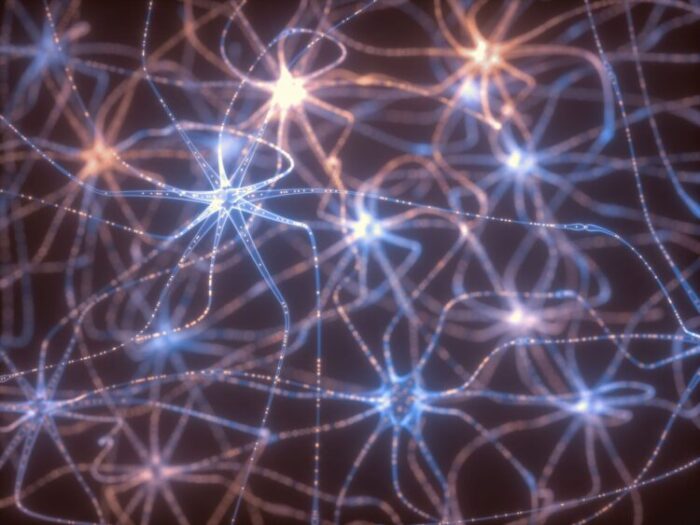Definition of Authentic Intelligence™ (AQ):
Authentic Intelligence is the unique ability to harmoniously blend cognitive intelligence, emotional intelligence, and intuitive inspiration. This means operating rationally, emotionally, and intuitively all at once, fully engaging all aspects of consciousness.
An authentically intelligent person possesses:
- Subject Matter Expertise: Deep knowledge and understanding of their field.
- Emotional Mastery: The skills to recognize and manage both their own emotions and those of others.
- Intuitive Insight: The ability to access and operate from an optimal version of oneself, focusing on goals in a way that serves humanity rather than self-interest.
Introduction
The concept of Authentic Intelligence (AQ) is gaining traction as a holistic approach to human potential. AQ integrates cognitive, emotional, and intuitive capabilities, creating a well-rounded and profoundly impactful mode of operation. Interestingly, individuals with aspects of neurodiversity—such as autism, ADHD, dyslexia, and other neurological variations—often exemplify this form of intelligence in ways that can surpass their neurotypical peers. This article explores why neurodiverse individuals are uniquely positioned to tap into Authentic Intelligence and references research studies that support this perspective.
Neurodiversity and Subject Matter Expertise
Neurodiverse individuals frequently exhibit intense focus and specialization in specific areas of interest. This deep dive into subject matter expertise aligns perfectly with one of the key components of Authentic Intelligence. For instance, individuals with autism often develop remarkable skills and knowledge in their chosen fields, as demonstrated in a study by Baron-Cohen et al. (2007), which found that autistic individuals often excel in systemizing domains such as mathematics, engineering, and computer science. Their ability to immerse themselves in their interests without distraction allows them to achieve a level of expertise that can drive innovation and progress.
Emotional Mastery and Empathy in Neurodiversity
Contrary to outdated stereotypes, many neurodiverse individuals possess heightened emotional sensitivity and a deep capacity for empathy. For example, research by Sucksmith et al. (2013) highlights that individuals with autism may experience emotions more intensely and develop unique ways of understanding and managing these emotions. Furthermore, people with ADHD often demonstrate a high degree of emotional awareness and empathy, as noted in studies by Shaw et al. (2012). Their experiences with emotional regulation challenges equip them with a unique perspective on emotional mastery, enhancing their ability to connect with and support others.
Intuitive Insight and Innovation
Intuition is another pillar of Authentic Intelligence, and neurodiverse individuals often display extraordinary intuitive insights. Dyslexic individuals, for example, are known for their strong problem-solving skills and innovative thinking. A study by West (2009) found that dyslexics tend to approach problems holistically, using their intuition to see connections and patterns that others might miss. This intuitive ability enables them to access an optimal version of themselves, focusing on solutions that benefit the greater good rather than self-interest.
Neurodiversity as a Catalyst for AQ
The integration of these unique strengths—subject matter expertise, emotional mastery, and intuitive insight—positions neurodiverse individuals as natural exemplars of Authentic Intelligence. Their cognitive diversity allows them to approach challenges from multiple dimensions, making them adept at harmoniously blending rational, emotional, and intuitive processes.
Conclusion
Neurodiverse individuals possess unique abilities that align closely with the principles of Authentic Intelligence. Their deep subject matter expertise, emotional sensitivity, and intuitive insights enable them to operate at a level that fully engages all aspects of consciousness. As we continue to understand and appreciate neurodiversity, it becomes clear that these individuals are not only capable of achieving Authentic Intelligence but are often leading the way in demonstrating its profound potential.
By recognizing and fostering these strengths, we can create environments that support all individuals in tapping into their Authentic Intelligence, ultimately enriching our collective capacity for innovation, empathy, and holistic problem-solving.
About the Author:
Kathleen O’Grady, CEO of Authentic Leadership Advisors, and founder of the Authentic Intelligence™ Framework and Coaching Model, brings nearly 20 years of coaching expertise to top executives, nonprofit leaders, and entrepreneurs. Kathleen’s groundbreaking work in coaching and neurodiversity, along with her extensive experience working with creatives and innovators, has solidified her reputation as a transformative leader in the field. As a Master Certified Coach with the International Coaching Federation, Kathleen ranks #1 in USA Today’s Top 10 International Coaches, recognized globally for her transformative methods.
Research and Case Studies
Baron-Cohen et al. (2007): Highlighted the exceptional systemizing abilities in individuals with autism, contributing to deep subject matter expertise.
Sucksmith et al. (2013): Emphasized the intense emotional experiences of autistic individuals, fostering unique emotional mastery.
Shaw et al. (2012): Demonstrated the high emotional awareness and empathy in individuals with ADHD.
West (2009): Showed the innovative and holistic problem-solving approaches in dyslexic individuals.





